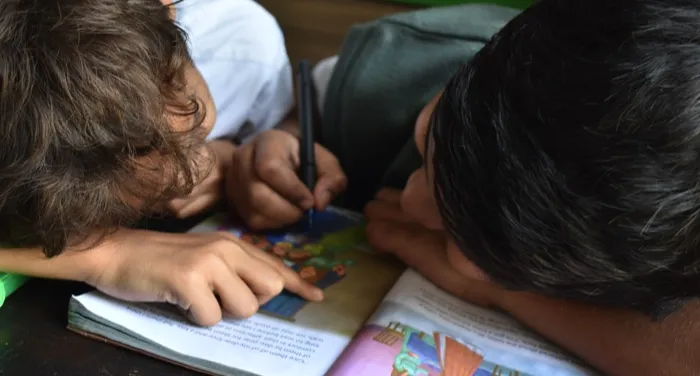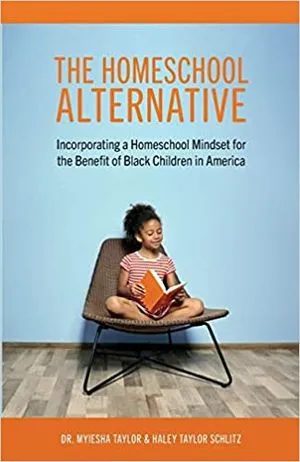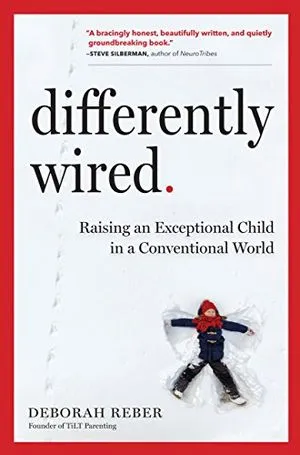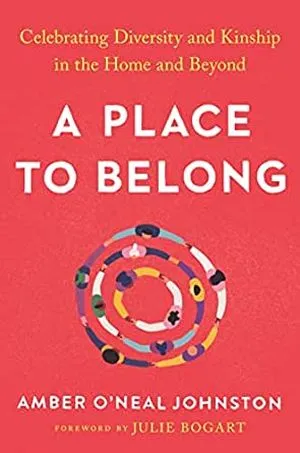
These Books Help Me Find the Wonder in Homeschooling
As we start our third full year of homeschooling, I find myself in a weird sort of mindset. I love it, but at the same time, it’s a lot — A LOT — of work. And as a single parent who also works full-time (remotely) and then some, I’m feeling it. My son is in 1st grade, but in Montessori (we are Montessori homeschoolers), he’s starting the three-year cycle of lower elementary. This means it’s a whole new curriculum cycle, and while I really love Montessori, I’m not going to lie: the prepared adult (central to the method) is also important in homeschool, and it’s a lot of work. Lately, I have been feeling all of it.
Would it be easier if I sent my son to school? Sure, maybe. It would give me more time, without a doubt. But for a variety of reasons, we homeschool. And especially right now, for us, it’s a non-negotiable. So how do I find the motivation to plan, to search for materials and curricula, to prepare, when I have a bajillion other things competing for my time?
Well…like with most things, I turn to books. I also scroll through my homeschool Instagram community (while remembering that A LOT of social media is not real life!) for ideas. I am forever indebted to the wonderful people I’ve met there who’ve helped me over the last few years, and I can always count on them for great book suggestions, unit study ideas, or creative projects. But books are the thing I turn to when really need to refill my homeschooling reserves or be inspired. (You might even be inspired by some of these, even if you don’t homeschool!)
If you’re looking for more books to inspire you with teaching or education, check out this post about creating a classroom library, and this post about books that will encourage a love of learning.

Homeschooling is a mindset, as Dr. Myiesha Taylor has written, in her book The Homeschool Alternative: Incorporating a Homeschool Mindset for the Benefit of Black Children in America. Even if your children go to public school, caregivers can still incorporate this mindset into parenting and the home. This book is a great reminder of that. Iris Chen also talks about shifting mindsets in her book Untigering: Peaceful Parenting for the Deconstructing Tiger Parent. Both of these books help to remind me why I do what I do, and help recenter me when I start to have doubts.

There are also the old standbys, like Julie Bogart’s The Brave Learner: Finding Everyday Magic in Homeschool, Learning, and Life. This was the book that was recommended to me back in 2019, when I was first interested in homeschooling. I recommend it to anyone interested in homeschooling — or merely curious. I think there are so many great ideas in it, even just for parenting. Another staple of mine is John Holt’s Teach Your Own: The Indispensable Guide to Living and Learning with Children at Home, which was recently updated last year. Holt is a classic homeschool/unschooling read and this new version is wonderful. Differently Wired by Deborah Reber is on my re-read list, to remind me that not all kids fit the prescribed mold and to encourage ways to really tweak and personalize the learning experience for my own kiddo.

Homeschool doesn’t exist in a vacuum though. Our community includes 4H, Hebrew school, Scouts, baseball, roller skating lessons, and more. Our own home environment and culture is part of the larger context of our schooling as well. Amber O’Neal Johnston’s A Place to Belong: Celebrating Diversity and Kinship in the Home and Beyond is a book that I love to return to (and it was just published this year!) to read about how much representation matters, creating a safe and inclusive space and community, and raising a socially conscious child. The Wild and Free Family by Ainsley Arment reminds me about the work I do to create our family home culture, which helps to fuel our homeschool.
In the end, what helps me get excited for the school year and what refills my cup is hearing my son pretend to make a YouTube video while he’s doing a math problem — explaining it, pretending he’s talking to an audience, and having fun with it. It’s realizing things are awfully quiet and peeking around the corner of the playroom only to find my son curled up with a book or looking ahead in a workbook I got for the year. So I take a deep breath, tell myself it’ll be okay after all, and pick up a book from my home ed stack I set aside, and start reading.













